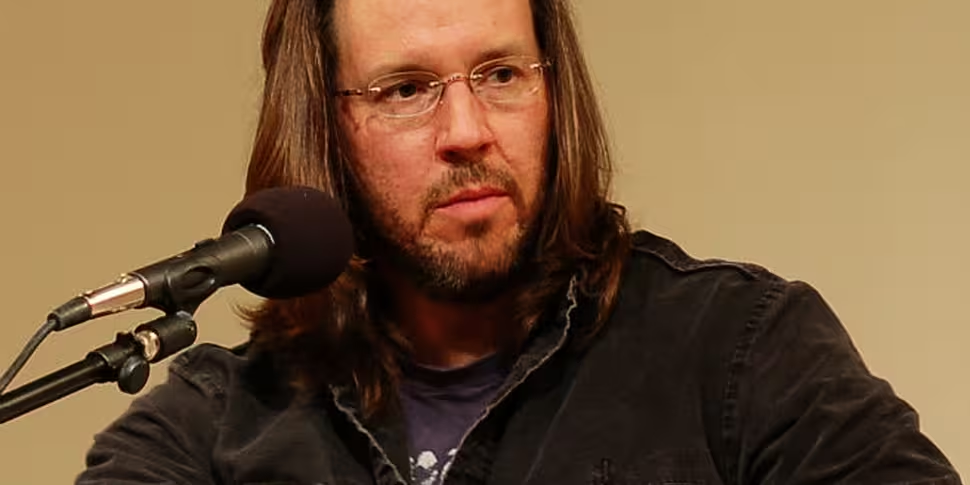In 2008 David Foster Wallace, widely regarded as one of the greatest writers of his generation, took his own life after years of battling with depression. In the years since his death Wallace’s popularity continued to grow. In 2011 his final novel, The Pale King, was posthumously published, securing his status as a cult figure.
The central draw to Wallace’s works was his reflections on society, what it means to be human, and how the world was changing. Born in 1962 to two professors, one of English the other of philosophy, Wallace grew up in a period of middle class liberalism surrounded by literature and intellect.
Both of his parent’s subjects filtered into the young Wallace and would prove the foundations of his career and writing. Though he excelled at philosophy in college, winning high accolades for his senior thesis, Wallace decided that his future lay in fiction. His senior English thesis became his debut novel and Wallace’s joined a generation of highflying and early blossoming writers.
A comic exploration of the modern human condition The Broom of the System garnered national praise and established Wallace as a name to watch. Over the following years he published a collection of short stories, a cultural history of rap, and numerous articles before taking up his first teaching post, at EmersonCollege, in 1991.
As Wallace’s body of work grew so too did his reputation.
The ‘80s and ‘90s had brought massive Cultural Revolution. Race, gender, and sexuality were being challenged and redefined. Economic boom had brought change to society and values and in media the television had firmly become king.
Wallace’s writings reacted to this shifting landscape, making sense of the changing ground beneath. For many of his peers he became a guiding voice. This position was strengthened with the publication of his second novel, Infinite Jest, in 1996.
Categorised as a hysterically real work, Infinite Jest explored themes of addiction and recovery, family, suicide, and entertainment through the story of a film of the same name. So excellent is this film that people who watch it lose all interest in the real world, and eventually die. Quebecois separatists are trying to get a master copy which they will use to terrorise the US.
This plot acts as a bizarre backdrop on which Wallace can build a cultural reflection and commentary. Almost a thousand pages long and with 388 endnotes Infinite Jest is a remarkably dense and heavy read. Its brilliance made it an instant hit though, as Trinity College Dublin’s Time Groenland explained: “[Infinite Jest] gives the experience of addiction in its very form. It’s written in this very addictive style and in this addictive voice that Wallace perfected…Once you get in deep enough, it’s very hard to get out”.
Though widely celebrated for his genius, and possibly because of it, Wallace struggled with depression for most of his adult life. On the 28th of September 2008 he wrote a two-page note, arranged part of the manuscript for his unfinished third novel The Pale King, and took his own life.
In 2011 Wallace’s third and final novel, The Pale King, was posthumously published and was a finalist for the Pulitzer Prize for Fiction the following year. This doesn’t capture the extent of Wallace’s genius or how widely celebrated and venerated he has become.
Few contemporary authors can compare, not only to Wallace’s popularity, but also to his influence. His satirical wit and keen cultural eye, coupled with a fantastic ability to write engaging and entertaining prose made Wallace the envy of many with authors like Dave Eggers, Zadie Smith, and Jonathan Franzen counted among his admirers.
Talking Books’ host Susan Cahill spoke with Tim Groenland and Dr Marshall Boswell of RhodesCollege about the life, writings, and legacy of David Foster Wallace. Does David Foster Wallace deserve his reputation as one of his generation’s greatest writers? What made him such a popular author? And which of his books should we try to tackle first?
In the second half of the show Susan talks with renowned British philosopher Simon Critchley about the philosophy of suicide and his book Notes on Suicide. For anyone affected by suicide or who needs to talk please call Samaritans on 116 123 or Console 1800 247 247.
This week’s music to read to
The show opens with Hilary Hahn performing Max Richter’s Mercy with Philip Glass’ A Gentleman’s Honor bringing the show to a close.









